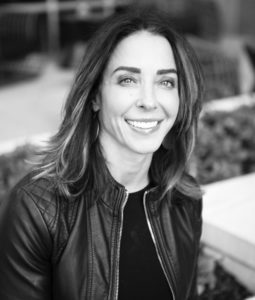Top Story
Recap: Virtual Hip Hop Architecture Camp
On August 1-11, the Hip Hop Architecture Camp held their free virtual camp experience for 635 middle school and high school students...
During 2020, ULI Charlotte Member Ashley Spinks, a Senior Designer/Project Architect at Little, participated in the ULI Health Leaders Network and shared some of her experiences and lessons learned.
My involvement with The  ULI Health Leaders Network was initiated from a desire to better understand the process and partnerships that can generate innovative, collaborative solutions to reach the traditionally underserved and underrepresented populace within the Charlotte community. I believe that through progressive partnerships and community engagement we can positively impact, through the built environment, the health, education and social equity of a community, all while advancing economic development, entrepreneurship and innovation.
ULI Health Leaders Network was initiated from a desire to better understand the process and partnerships that can generate innovative, collaborative solutions to reach the traditionally underserved and underrepresented populace within the Charlotte community. I believe that through progressive partnerships and community engagement we can positively impact, through the built environment, the health, education and social equity of a community, all while advancing economic development, entrepreneurship and innovation.
Through webinars and virtual forums/convening sessions, our Cohort 3 has gained a better understanding of Partnerships for Health Equity and Opportunity; The Business Case for Healthy Buildings; The Impact of Identity and Culture on Health and Social Ties in the Built Environment; Increasing Inclusivity and Diversity to Make Cities Communities and Developments for All; and Leveraging Healthcare to Strengthen Communities and Combat Social Inequities. Our most recent virtual session in July was led by Tiffany Pertillar with Elevating Equity and Charles Brown of Equitable Cities, who built upon past conversations within our cohort by facilitating a discussion on race, bias and privilege.
We have also been given the opportunity to collaborate within affinity groups for a deeper dive into research and conversation with fellow cohort members. The affinity groups are focused on topics of multi-generational equity; climate change, built environment and health; biophilia and access to and transformation of nature, parks and public spaces; anti-displacement and gentrification; economic development and tourism – local and beyond; and equitable access to and use of technology.
While no one could have predicted this is where we’d be in August 2020, more than mid-way through our program participation, the social upheaval has given us a unique opportunity within a safe and encouraging environment to have deeper conversations on race, justice, diversity and inclusion. We have heard from colleagues in different professions and in different cities on ways to facilitate community engagement, build on existing cross-sector initiatives to embed equity, and how to create more equitable systems and developments aimed to dismantle systemic racism and segregation, celebrating our commonalities and diversity.
Underlying all our discourse is the inherent belief that it takes real time and commitment from many different stakeholders, over the long term, to initiate and create lasting change. I’m looking forward to our continued conversations and addressing how we as an organization, and as individuals, can further implement actions to support our efforts.
Lessons Learned:
https://www.enterprisecommunity.org/opportunity360/measure
https://www.healthaffairs.org/do/10.1377/hblog20190115.234942/full/
https://www.buildhealthyplaces.org/whats-new/healthcare-playbook-for-community-developers/
https://communitydevelopment.art/
https://arts.ufl.edu/sites/creating-healthy-communities/home/
More information on the ULI HLN Cohort 3 members
https://americas.uli.org/uli-health-leaders-network-cohort-3-participants/
ULI’s Building Healthy Places Initiative
https://americas.uli.org/news/?programs=building-healthy-places-initiative
About Ashley Disher Spinks, AIA, LEED AP – With a Bachelor of Fine Art in Photography and Art History, and a Master of Architecture, Ashley studies and documents interactions between habitation, architecture and the vacillating landscape of the constructed world. A Senior Designer/Project Architect at Little, her professional emphasis is on building design, building technology, and the design process from concept to construction. Her style and expertise come together to provide clients with collaborative solutions that acknowledge social responsibility, build community connections and elevate business performance. Ashley is currently focused on projects that fuse typological redefinitions and environmentally conscious design with leading-edge technology and innovation.
Don’t have an account? Sign up for a ULI guest account.